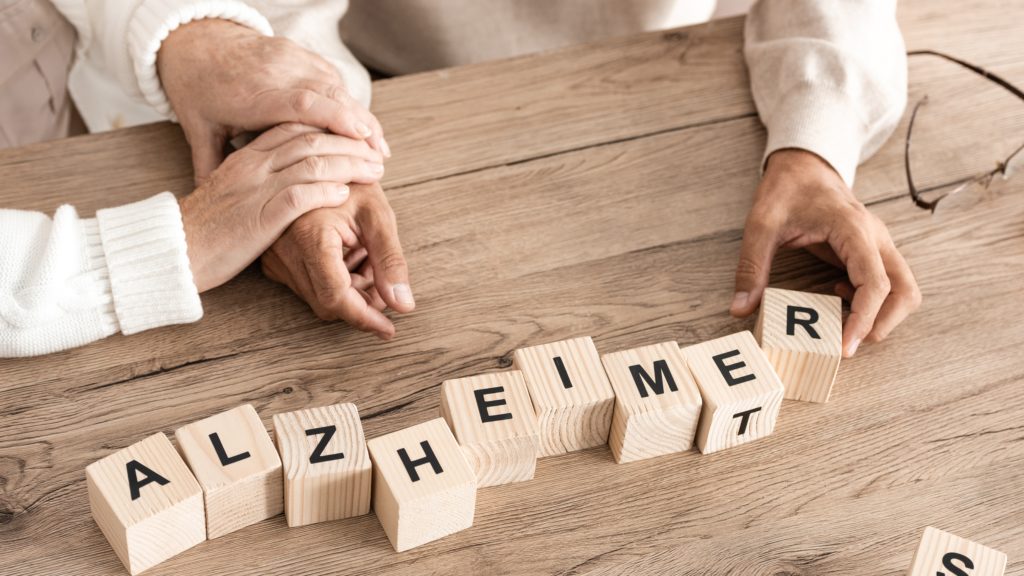Alzheimer’s is the degenerative disease with the most cases and people affected. Of all of them, it is without a doubt the degenerative disease that causes the most problems in those who suffer it. And not only in the patients, but also in their families, coming to condition their whole life. In this article, Nomenial explores this degenerative disease.
Alzheimer’s defined:
Alzheimer’s disease (AD) is the most common type of dementia. It is a neurological disease that causes the degeneration of the cells of the nervous system: the neurons.
This disease involves a physical alteration of the brain. In patients who suffer it, there is a general reduction of brain tissue. The neuronal damage begins in the hippocampus and progressively extends to the rest of the brain.
Due to such brain damage, the patient with Alzheimer’s suffers cognitive deterioration that results in serious consequences such as memory loss, personality changes or difficulties in performing daily tasks.
Thanks to research in recent years, Alzheimer’s has begun to be viewed from a broader perspective. It has been proven that the deterioration of the brain begins long before the appearance of the first symptoms. Therefore, a large part of the efforts to find a way to stop it are focused on the study of this pre-clinical phase.
Advances in Alzheimer’s research
Among the various advances, some image markers (biomarkers) have been established to detect the disease early. Thanks to these, it is possible to determine a treatment for those people who do not yet present symptoms but whose brain has already begun to change.
However, it is true that not all people who show alterations in the biomarkers will develop dementia.
At present, researchers continue to search for new biomarkers that make early detection more accurate, something that is crucial for slowing down or delaying the evolution of Alzheimer’s.
For those patients who already have symptoms, the researchers are also dedicating their efforts. An example of these advances in Alzheimer’s is the recent creation of a new method that makes it possible to detect the disease through a simple blood test. Thus, they avoid undergoing more invasive tests.
And where does the name ‘Alzheimer’s’ come from?
Aloiz Alzheimer, discoverer of the disease
A German psychiatrist, this expert investigated between 1901 and 1906 the case of Aguste D., a 51 year old woman who presented a serious loss of memory. After her death as a result of the disease, the psychiatrist investigated the brain of this patient and observed that her cerebral cortex was narrower than normal, presenting, in addition, other anomalies. Alzheimer’s thus determined the main characteristics of the disease that would later bear his name.
Alzheimer’s: symptoms
It is common for all of us to suffer from certain memory lapses or slight forgetfulness. Examples as simple as where we leave the keys, a name, a situation… But with Alzheimer’s the forgetfulness gets worse. In this way the loss of memory becomes more evident and severe, a difference could be that while a person forgets where the keys are, another person with Alzheimer’s may forget that he or she is using the keys.
First symptoms of Alzheimer’s:
The importance of detecting Alzheimer’s with time lies in verifying the first latent aspects that emerge little by little in those affected.
– When memory loss begins to interfere in totally everyday situations. Like making the food, work or forgetting to eat.
– If it is repeated frequently and even constantly.
– When the patient cannot follow a conversation because of forgetfulness.
-If the patient gets angry easily at home, at work, with friends or in places where they are out of their environment.
More serious symptoms of Alzheimer’s:
According to families, the most serious symptom is the change in the personality of the person with Alzheimer’s. There are testimonies, in which it is the own relatives who express “that they miss their mother/father” because of the alzheimer. This experience is terrible, which is why it causes so much sensitivity, due to its cruelty.
The loss of mobility is an aspect that is on a secondary plane, but it also makes the daily life of the users difficult. Impediments to walk, to move around or to make any movement to eat or to wash up form a desolate panorama.
The difficulty to communicate, to speak and to understand is another very serious symptomatic aspect.
Other aspects that remain in a third plane are the loss of energy, the changes of mood, the inability to solve situations.
Medical work in Alzheimer’s disease:
Doctors who treat Alzheimer’s are not just one type. They consist of a broad range, including psychologists, psychiatrists and especially neurologists. Since they are specialized in the area of the brain and neurons. In fact, there is a specific neurological exam aimed at detecting the pathology in time.
The doctor will evaluate the patient’s reflexes, balance, language, sensitivity and even eye movements. The doctor will try to look for symptoms to verify or rule out the presence of a series of diseases.
For example, signs of stroke in the brain, the presence of symptoms typical of Parkinson’s disease. Or even brain tumors or the accumulation of liquids that can influence in damaging the memory.
When can one diagnosis Alzheimer’s? Here the most important thing is to know the stage of the disease. Although it is true that currently there is no cure for Alzheimer’s if there is treatment that mitigates or delays the onset of symptoms.
Cognitive impairment
Cognitive impairment (MCI) is an inherent circumstance of Alzheimer’s disease. Scientists have identified memory loss that is age-related and also dementia and they have linked it to MCI. People with MCI suffer memory loss, but it is very important to identify this set of symptoms and distinguish them from a misdiagnosis of Alzheimer’s.
People who have cognitive impairment are able to perform basic tasks of daily living. Although it is true that MCI sometimes leads to Alzheimer’s, it should be noted that it only occurs sometimes. Therefore not all MCI patients will necessarily have Alzheimer’s.
It is true that family members of people with MCI will detect memory loss. They will inevitably raise the alarm about the possibility of Alzheimer’s. In fact, it is possible that in cognitive tests they will also obtain a very low performance.
In addition, MCI patients will suffer from symptoms recognized in the Alzheimer’s picture. Symptoms such as depression, anxiety and significant mood swings.
Stages of Alzheimer’s
There are three significant stages in the different phases and evolution of Alzheimer’s. Here we stipulate a series of summarized characteristics attached to each of these.
First Stage
It affects their speed, being this diminished. They present features of slowness, slight changes of mood and memory loss. They may even lose track of a conversation or what they have started to say. The most important aspect to highlight is that in this phase they still defend themselves against tasks in the most autonomous way.
Second stage
The moderate stage. This is the classic stage in which the person perfectly remembers very distant aspects in the time of his past life but has problems remembering the recent. They have a hard time recognizing current aspects such as date, place, time.
Sometimes, they cannot even recognize the faces of some relatives that were previously known.
Third Stage
The most serious. They lose the ability to eat, chew and ingest food. The defenses of the organism are very low being vulnerable to other diseases that in many occasions end up being the ones that end up with the person. In addition, at this stage they no longer recognize anyone and have no control over the body and need constant attention.







